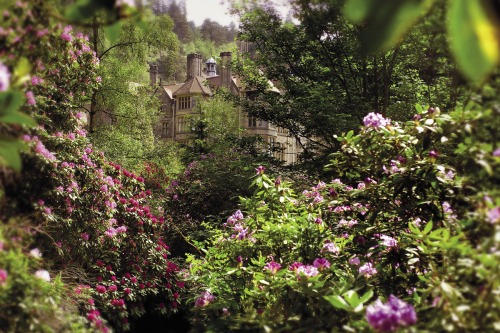State of the Arts: Three Popular North East Venues that Need Your Support
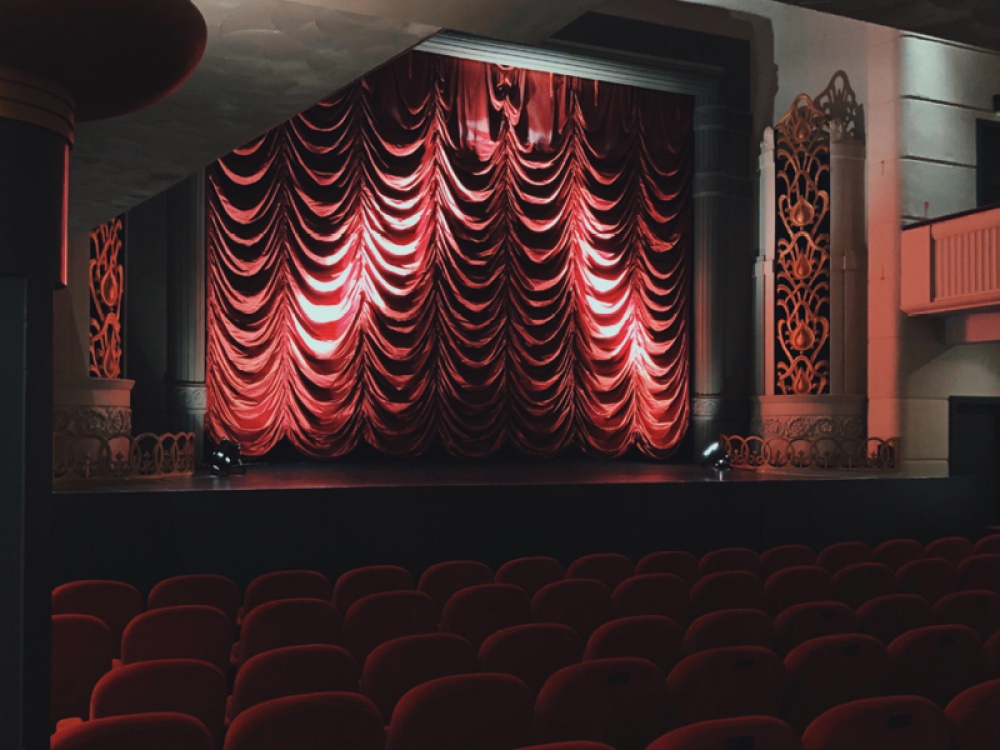
Our cultural sector has suffered enormously recently, and with rising costs and decreased funding more and more venues are at risk of closing
The Exchange Theatre charity closed its doors on 17th April and such closures are all too common nowadays. Side Gallery on Newcastle’s Quayside is another which, having been a dedicated home to documentary film and photography for over 45 years, closed to the public in April. With funding for the arts being cut, and running costs increasing, venues such as this are being forced to draw their curtains. While it is hoped the new occupiers of the Saville Exchange building will continue to provide a cultural offering to the local community, and that with the support of donors, Side Gallery can work towards reopening in September 2024, these all-too-familiar stories suggest that, now more than ever, we must protect our region’s cultural resources.
Another iconic venue in Newcastle’s city centre in need of public support is Tyneside Cinema. ‘It’s a very difficult time for all cinemas, but arthouse independent cinemas are particularly hard hit,’ explains Simon Drysdale, Interim CEO of Tyneside Cinema. ‘Audiences are down compared to pre-pandemic, for us that’s 40 percent fewer people coming than before, while costs are stratospherically higher than they ever were – our electricity bill for example is no longer £70,000 per annum, it’s now £230,000. So we’re being squeezed from both ends and that means that we’re in real difficulty in terms of moving forward.
Read More: How Newcastle’s Live Theatre Hopes to Reshape The Future of The Arts
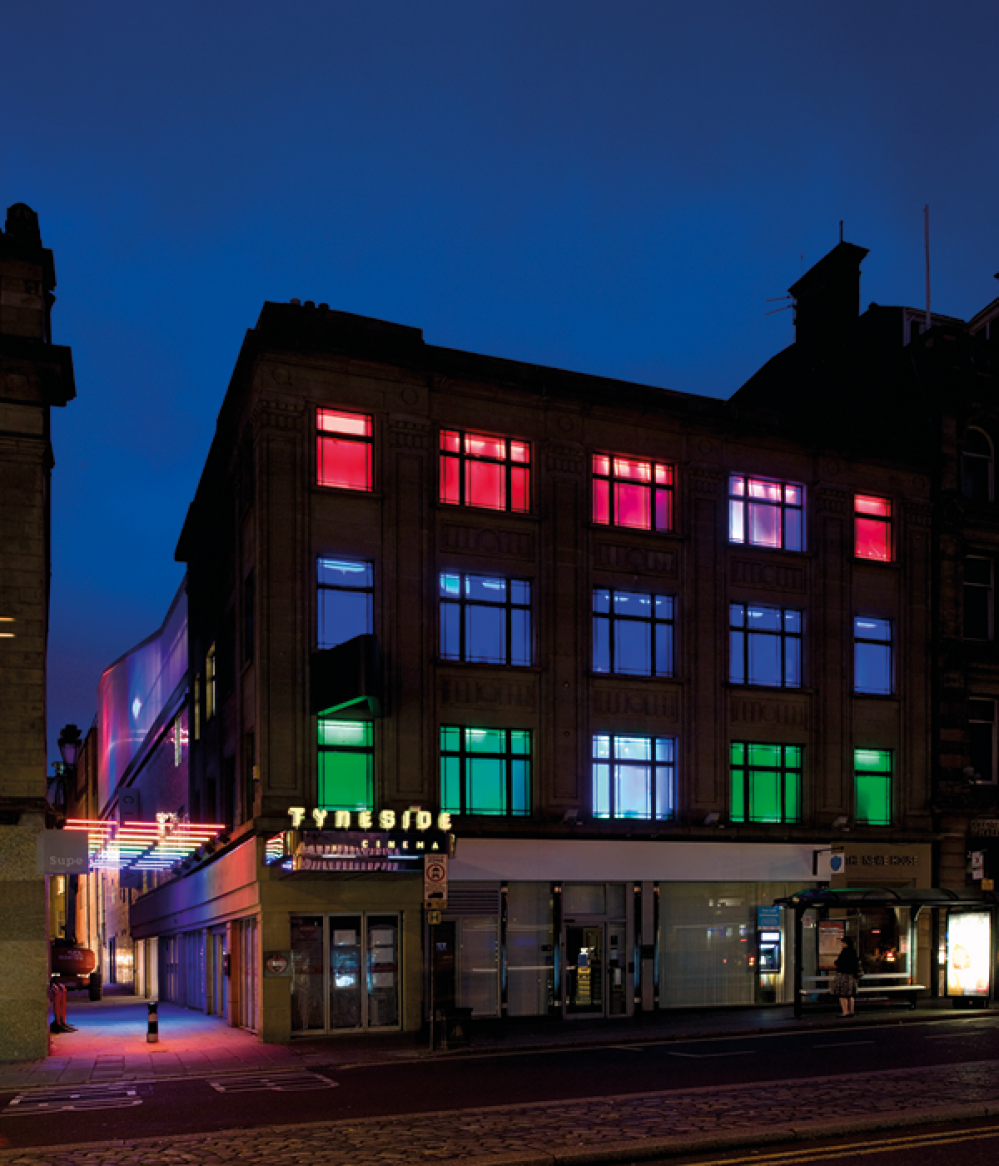
‘While we get a little bit of support from the British Film Institute, other than that we’re a charity and all our money is earned through selling tickets or food and drinks at our bar. It’s therefore a very simple but rather brutal equation: if you’ve got less money coming in and more money going out there’s a problem.’
Everyone’s fingers are crossed it won’t happen, but if nothing changes Tyneside Cinema faces permanent closure – something that would be a significant loss to the city and its community. ‘This place has been here since 1937 so it would be an absolute tragedy,’ says Simon. ‘As a cinema we present more films than probably anywhere else outside London (we put on 460 different film titles last year) and we certainly have the broadest range of films in the North East. You can see everything from the blockbusters through to the work of amazing new film-makers, as well as foreign language films, so there’s a window into different worlds right here in the centre of the city and, without us, the North East would lose that.
‘The other thing is our heritage. We were built as a newsreel theatre and I think we’re the only still news newsreel theatre in the United Kingdom. This means on one hand people’s grandparents remember coming here to see the news while on the other, since then, generations have come to the cinema to see the latest releases, so all that history would be lost. It’s also been adopted by a community that is a lot more diverse than people realise. For example in the 80s this was often described by women as “the only safe space in the city” where they felt they could meet, and we’ve also been known as a place where older folk come for a cup of tea and a teacake. It’s a marvellous thing having people from all sorts of backgrounds cheek by jowl, sitting next to each other. There’s a whole range of people who feel at home here.’
Read More: Comedy Nights and Gigs to Book Across Yorkshire
When it comes to fundraising Tyneside Cinema are taking two different approaches. Simon tells us: ‘We’re asking people to show their love for the cinema by making donations. They can make donations through Just Giving with the hashtag #LoveTynesideCinema or they can just go to our website and look at the support pages there. We are incredibly grateful for donations and people have been really generous already. But actually more than anything, we want people to come to the cinema. The best thing people can do is see more films. What we really, really want is people to reengage with film and remember why it’s so brilliant to sit in a dark room with a load of other people looking at a massive screen. We can get through this difficult time, we will get through it, but only with the help of the people of the North East. We really, really need that now.’
‘We can get through this difficult time, we will get through it, but only with the help of the people of the North East’
Alnwick Playhouse is a much-loved hub of cultural activity for central and north Northumberland. With a full-scale 266-seat main house theatre, as well as a 70-seat studio for cinema, theatre and dance, they welcome hundreds of people from the local area through their doors each day. While the Playhouse receives public funding every year, unfortunately, just as with the Tyneside Cinema, this doesn’t cover all their costs. ‘We get Arts Council England funding for specific projects but beyond our core activities they don’t contribute,’ says Damian Cruden, artistic director at Alnwick Playhouse. ‘Other public funding comes from Northumberland County Council and the Town Council. Local authority funding represents about three percent of our total turnover and although not insignificant and much appreciated, it is challenging to make ends meet, particularly in a time of economic strife such as now.’
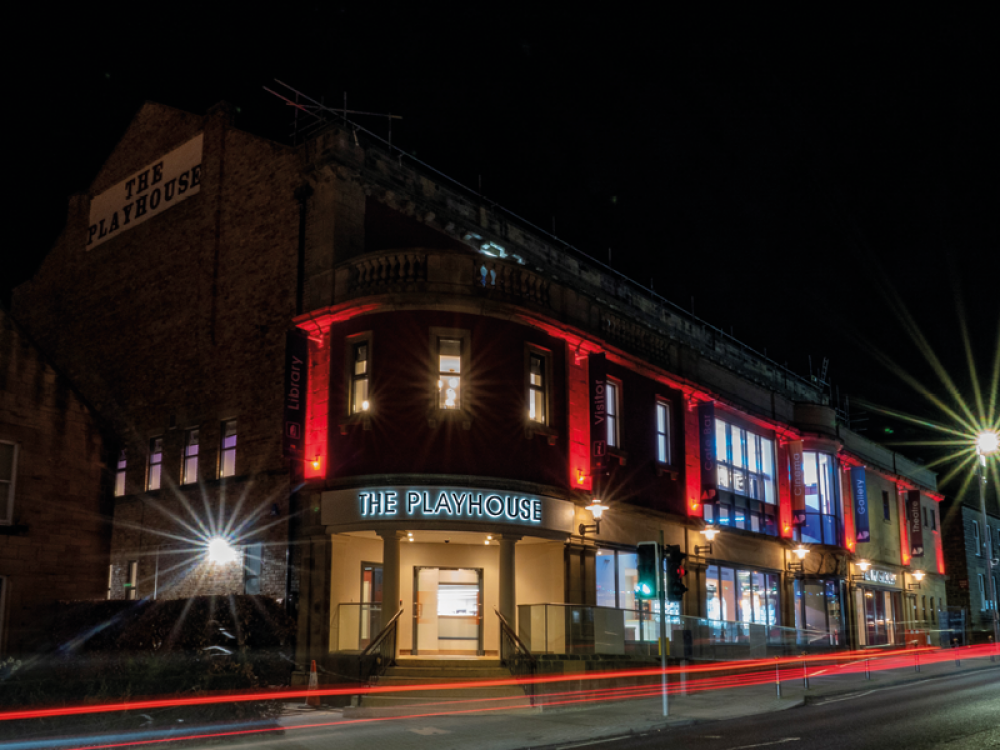
Even with this funding, Alnwick Playhouse are left with a huge 92 percent of their running costs to be found from ticket income, food and drink sales, and public donations. However with rising costs and falling wages people are struggling to find money to spend on cultural activities. For those who can help there are a number of ways you can show your support to the Playhouse, from making a donation to their appeal, naming an auditorium seat or becoming a member to remembering the venue in your will or through corporate giving, and as Damian explains, it really does make a difference.
‘People can become a member of the theatre which gives them discounts on tickets, and at the café and bar. We have a pay it forward scheme where we ask that those who can afford it pay for a ticket for a young person to come to the theatre. This allows us to subsidise, or in some instances give away tickets to schools. However, the best thing anyone can do is come along and enjoy what’s on offer. Buying tickets to enjoy a play, film or opera, or just coming in for a drink or coffee is great and it all helps. Our purpose is to give people a place they can celebrate through high quality events with their family and friends.
‘The recent investment in the Playhouse was a sign of recognition that culture is a vital part of a community,’ Damian continues. ‘In light of such an investment it is the responsibility of all those involved; politicians, artists, local businesses, audiences and community groups that perform here, to ensure that there is a sustainable way forward for their arts venue. Communities have to use the resource, be happy to pay for it and by so doing ensure that live art will be thriving and available for future generations.’
Read More: How Sunderland Author Glenda Young is Inspiring Creative Writers
It’s clear that both public support and funding are vital if we’re going to save our arts, and ARC Stockton shows how important it is, making good use of funding to help improve people’s lives through arts and culture. ‘ARC is a community arts charity that works locally and nationally,’ says Annabel Turpin, chief executive and artistic director at ARC. ‘We have events and activities going on all year round for everyone, particularly focusing on making sure anyone who might be socially excluded can take part. A lot of our activity is about bringing people together so they can better understand and enjoy the arts world and experience new ideas. We invite lots of different artists to spend time at ARC, working with local people, to make sure our programme is relevant to Stockton. We want to make a positive difference to our local community, and are always interested in working with new people.
‘We are not-for-profit, so all our money goes into what we do, and we fundraise from lots of different sources. Funding is critical to enabling us to put on events and activities where the ticket income doesn’t cover the real cost – which includes paying the performers or tutors, as well as covering the costs of planning, promoting and staging the events, opening the building etc. We run lots of free activities that are aimed at communities that would otherwise miss out on arts and culture, such as care-experienced children and young people, or socially isolated older people. We also subsidise most of our events and activities to make sure ticket prices are affordable for local people, which is particularly important at the moment given the pressures on everyone’s income.’
Read More: How to Spend the Perfect Weekend in Alnwick and Alnmouth
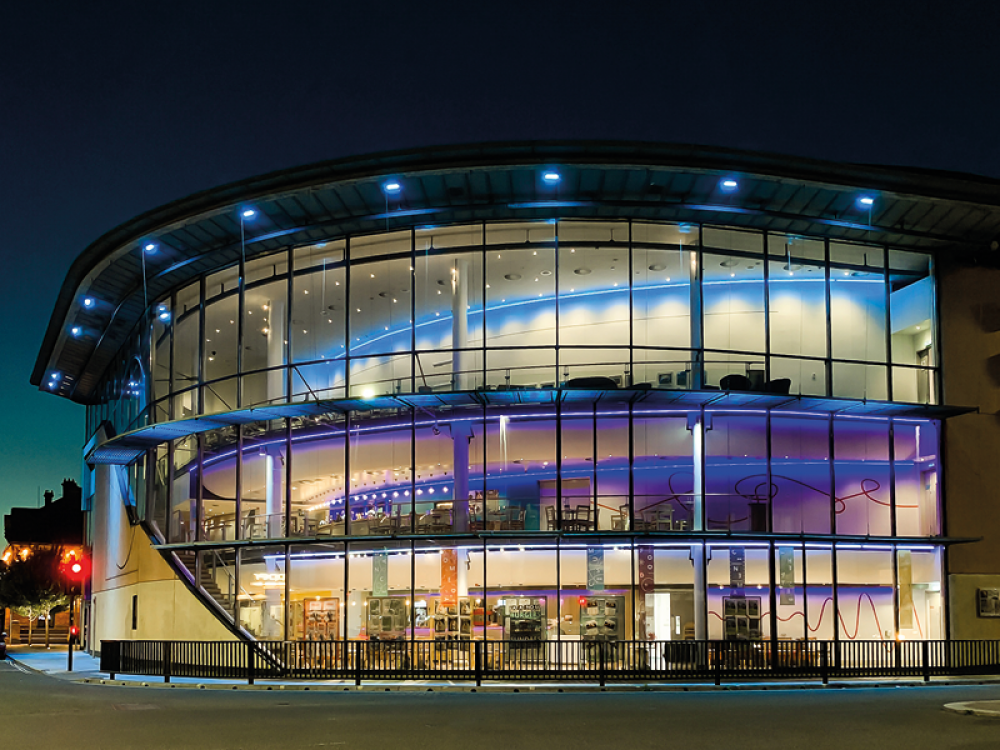
ARC Stockton receives regular funding from Arts Council England and from Stockton Borough Council, fundraises from other charitable trusts and foundations, as well as public funding sources such as a small grant from Public Health to support older people. This means they can run programmes for communities such as those with mild to moderate mental health conditions, refugees and asylum seekers, and children in receipt of free school meals, all of whom wouldn’t otherwise be able to access what they do.
Despite this, they do still rely on support from the public. Annabel explains: ‘There are lots of different models of running venues. Some are purely commercial, aiming to put entertainment on for people that can afford it; some are much more focused on a particular art form, whereas ARC’s mission is very different. We’re here to support and strengthen our local communities, and work hard to make sure our programmes of events and activities are responsive to what they want. The best way anyone can support us is to come and visit, see a film or performance, take part in a class or workshop, and also to give feedback. Even popping in for a coffee is a great way of helping us continue our work!’
While art is subjective (that’s what makes it so special) there is no debate about its importance to our region. ‘My background is music, theatre and dance before I worked in cinema, and art is really what makes life worth living,’ says Simon. ‘Part of it is about being able to experience what you couldn’t otherwise in terms of other people’s life experience. Film in particular gives you the opportunity to witness all the stories of others who are very entirely different from you that you would never know otherwise, so there’s a breadth of experience, knowledge and world view that they can bring.
Read More: Meet Saxophonist John Waugh Who Performs With The 1975
‘But also joy and entertainment! I think it’s really important to remember how exciting it is and what a buzz you get from going out and enjoying art, whether it’s a play, a film or an exhibition in a gallery. Enjoying that experience with friends and family or even on your own – I’m quite an advocate of seeing films on my own personally. It’s one of those things you can forget quite easily but when you go you realise just how important it is.’
‘If we don’t support cultural institutions they will fade away,’ adds Damian. ‘A world without the shared experiences of live music, theatre and art would be a far less meaningful experience. Culture allows us the chance to be part of a wider community and to recognise that we are not alone. Cultural engagement is in many ways an empathetic gymnasium. Our ability to imagine, to understand abstract forms, allows us to see the world from others’ perspectives.’
Annabel finishes: ‘Art is a way of connecting, of expressing ideas and feelings, and of understanding the world from other people’s perspectives. It also brings fun, hope and joy, as well as a million other things into our lives, and helps us shape our own identities. Can you imagine a world without books, films, music and so on?’
So, whether you prefer the ballet and opera, or films, comedy shows and pantos, we can all agree the most important thing is to go and see it all whenever you can and help keep the North East’s arts scene alive.






